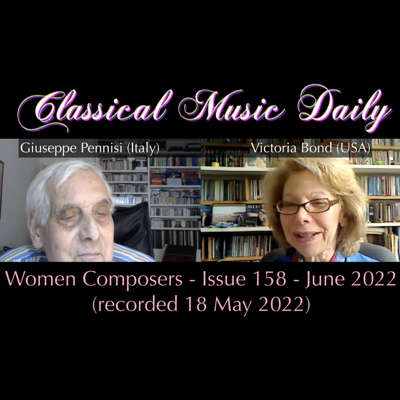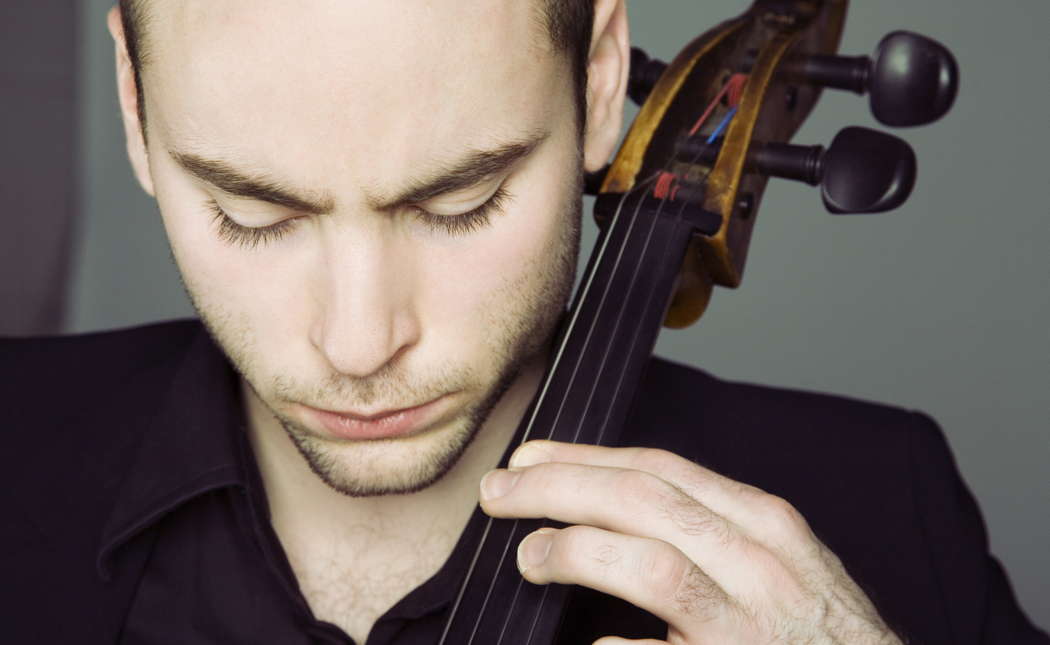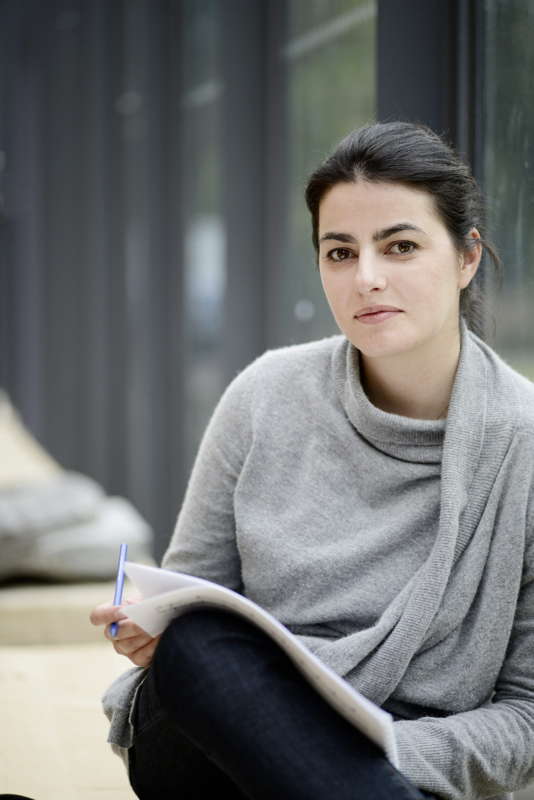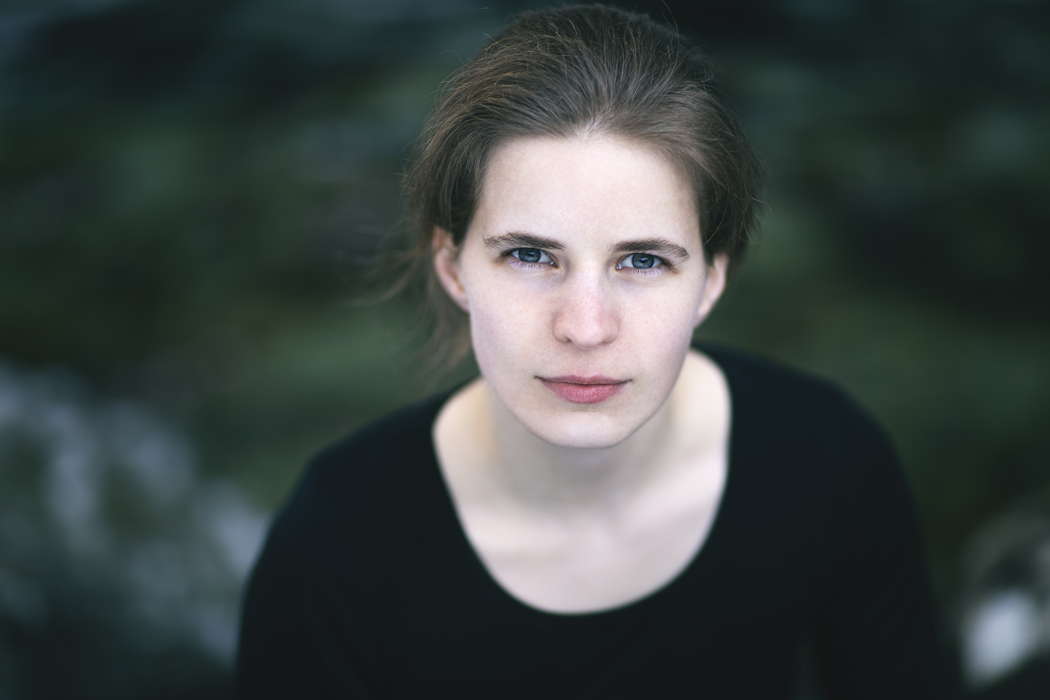 VIDEO PODCAST: Women Composers - Our special hour-long illustrated feature on women composers includes contributions from Diana Ambache, Gail Wein, Hilary Tann, Natalie Artemas-Polak and Victoria Bond.
VIDEO PODCAST: Women Composers - Our special hour-long illustrated feature on women composers includes contributions from Diana Ambache, Gail Wein, Hilary Tann, Natalie Artemas-Polak and Victoria Bond.
 PODCAST: John Dante Prevedini leads a discussion about Classical Music and Visual Disability, including contributions from Charlotte Hardwick, Robert McCarney, Halida Dinova and Giuseppe Pennisi.
PODCAST: John Dante Prevedini leads a discussion about Classical Music and Visual Disability, including contributions from Charlotte Hardwick, Robert McCarney, Halida Dinova and Giuseppe Pennisi.
 DISCUSSION: John Dante Prevedini leads a discussion about Music and the Visual World, including contributions from Celia Craig, Halida Dinova and Yekaterina Lebedeva.
DISCUSSION: John Dante Prevedini leads a discussion about Music and the Visual World, including contributions from Celia Craig, Halida Dinova and Yekaterina Lebedeva.
Peak Intensity
MIKE WHEELER listens to Dvořák, J S Bach, Dobrinka Tabakova and Sibelius from Jakob Koranyi, Tabita Berglund and the Hallé Orchestra
When Brahms saw the score of Dvořák's Cello Concerto, he was amazed that such a work was even possible, and regretted not having written one himself. If he could have heard Jakob Koranyi's performance with the Hallé Orchestra and conductor Tabita Berglund - Royal Concert Hall, Nottingham, UK, 1 April 2023 - he may well have dropped everything and got down to work on it there and then.
This had everything - a cleanly-etched sound-picture in the orchestral opening, the various solos shaped with undemonstrative eloquence, not least Laurence Rogers' account of the lovely horn theme. Koranyi himself could be lyrical or toughly argumentative, as appropriate. As the audience applauded at the end of the movement, he turned to applaud the orchestra.
The second movement's song-like qualities were uppermost, literally so in the quotation from Dvořák's 'Leave me alone'. (More on this later.) The first big orchestral outburst had real force without overbalancing the music's structure, and it was scaled back a little the second time. In the end, the quiet moments were the most eloquent of all.

Jakob Koranyi. Photo © 2007 Anna-Lena Ahlström
In the pre-concert talk, the audience was told that Dvořák's original tempo markings were being observed. The finale was certainly brisk, making the opening feel more exuberant than usual, but in the end there wasn't that much of a difference. The movement can sound episodic, but it didn't here, even with moments of sudden withdrawal that took your breath away. Koranyi's duet with leader Roberto Luisi was a moment of genuine chamber music. The parting second quotation of 'Leave me alone', a favourite of his recently-deceased sister-in-law, was touching without feeling mawkish. Koranyi's encore, the Prelude from J S Bach's Suite No 1, was engagingly fleet-footed.
The second half opened with Dobrinka Tabakova's Fantasy Homage to Schubert. The quiet opening effortlessly held our attention, as melodic shapes emerged, and earthy lower strings underpinned airy upper string lines. Tabakova took her cue from what she called the 'brave opening' of Schubert's Fantasy in C, D 934 for violin and piano. The solo violin quotation of Schubert's melody conveyed both fragility and hopefulness, matched by Timothy Pooley in the shorter repeat Tabakova gives to a solo viola. The ending, a soft chord played three times, was simply magical.

Dobrinka Tabakova, artist in residence
with the Hallé Orchestra.
Photo © Sussie Ahlburg
The start of Sibelius's Fifth Symphony seemed to grow out of Tabakova's sound-world, with a sense of expectation in the air. The strings were a touch more prominently balanced than I've heard in other performances, and there was a strong suggestion of forces stirring actively beneath the surface. The episode for solo bassoon (Arvid Larsson) over rustling strings, sounded genuinely eerie. The second part of the movement arrived with a powerful sense of breakthrough, and the account of the final section, in which the music reaches top speed, must have been about the fastest and most exciting I've heard.
The second movement flowed serenely, while the mood steadily darkened. The third movement followed without a break, again taken at an edge-of-the-seat fast tempo. Conductor and orchestra relished the way each turn in the road revealed a new vista, while the unrelenting build-up of the three-note figure that Sibelius linked to his excitement at watching a flight of swans, here seemed more like a huge flower opening.

Tabita Berglund. Photo © 2019 Nikolaj Lund
Peak intensity, when it arrived, was thrilling, and the six final chords were incisively sharp-edged.
Copyright © 15 April 2023
Mike Wheeler,
Derby UK



